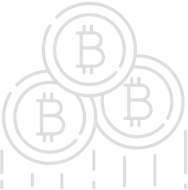The Zenome project is a decentralized blockchain-driven database of genomic information. This platform supports the possibility to manage your genomic data while maintaining privacy and ability to make a profit from selling access to different parts of the genome. It will establish equal conditions for drug development and for the progress of scientic and medical technologies.
STO/ICO Status
Claim this listing and publish updates.
Basics
| Platform | Ethereum |
|---|---|
| Type | ERC20 |
| Accepting | ETH, BTC |
| Circulating Supply | N/A |
| KYC | KYC & Whitelist |
| Restricted Areas | N/A |
| Homepage | Website URL |
| White Paper | View/Download |
Bonus
- Sale. Round 1 - 1 ZNA = 0.60 USD
About
It appears that the exchange of genetic information is of crucial importance. The prospective genetic market must ensure protection from possible misuse and genetic discrimination in particular. It is particularly important to maintain transparency and equal access to this market.
Zenome aims at creating the personal genomics infrastructure, that would enable participants to:
- Upload genetic information and take control of it.
- Securely store own genetic information.
- Make profit by selling access to genetic data or part of it.
- Undergo genetic testing in exchange to the right to use genetic information.
- Get individual dietary recommendations or personal training program based on genetic makeup.
- Make use of other genetic services.
The principal customers of genetic information are companies interested in genetic targeting such as Google, Facebook, Unilever and pharmaceutical companies.
Inside Zenome Platform different types of information are inextricably intertwined. The nature of each type determines the way to store information of that kind.
- Financial data, which includes records of transactions, is stored on blockchain.
- Anonymized genomic data is stored on the distributed network.
- Participant's personal data is kept on their own computers only.
Treating data of different kind differently provides privacy as well as scalability of the system.
Since all data transactions, including buying and selling data, are governed by smart-contracts, interactions can only include balances stored on blockchains.
Using any of pre-existing tokens for this purpose would result in unreasonable dependence on the valuation of external token. Thus, a separate utility token should be issued to power economic interactions on the platform.
